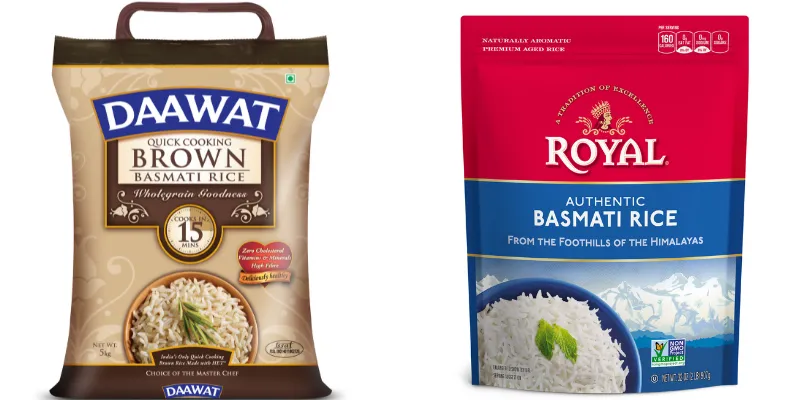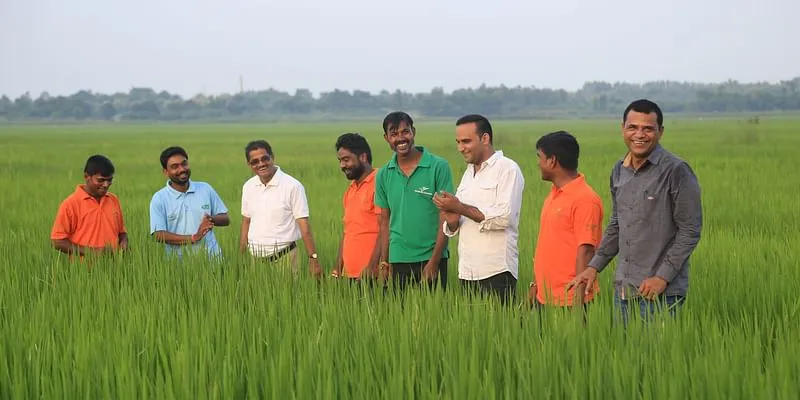How a rice agent from Amritsar build over Rs 4,000 Cr Indian brand we now know as Daawat
Raghunath Arora started LT Foods to put quality rice on the plate of the families of his village. Soon, it turned into a globally familiar brand — Daawat — spanning across 60 countries.
Around 70 years ago, Raghunath Arora, a rice agent, had a mission to feed the people of his village — Bhikhiwind in Amritsar — with quality rice.
He started a small rice trading company in 1965, which later turned into a partnership firm, Lalchand Tirathram Rice Mills (LT Foods), in 1977. Raghunath had bigger plans.
He wanted to make the homegrown basmati rice — famously used in pulao and biryani — reach beyond Amritsar without sacrificing a fair price for the hardworking farmers. Raghunath would inspect each batch of rice by hand to ensure quality.
Following such principles, over the years, has grown to what we today know as the Daawat Basmati rice brand.
So, how did the brand stay relevant for years? “By keeping the value of the company intact,” says second-generation entrepreneur Ashwani Arora, Managing Director, LT Foods, in a conversation with SMBStory.
“My father started the business, and my brother, Vijay Kumar Arora, introduced it globally. We carried forward the value our father inculcated in the business for keeping the quality consistent and innovating with the changing times,” Ashwani says.

Raghunath Arora, Founder of LT Foods
Daawat has captured about 20 percent of the market share in India amid stiff competition from brands, including India Gate, Kohinoor, etc. At present, it caters to 60 countries. LT Foods clocked Rs 4,686 crore in revenue in FY21, claims Ashwani.
From baby steps to a big leap
Between 1950 and 1977, LT Foods worked at a medium scale in surrounding areas of Punjab without any branding. In 1978, when Raghunath’s eldest son Vijay joined the business, the brand expanded to exporting premium Basmati rice in the US.
“Basmati rice is primarily grown in India, and it has been exported for ages to other countries. My father and brother wanted to tap this opportunity, and thus began exports. We now capture 50 percent of the US market with our rice,” Ashwani says.

Range of LT Foods- Daawat and Royal Basmati Rice
Vijay saw many unorganised players in India were “looting customers”, as he says, at the cost of providing them quality products. In 1984, the father-son duo decided to set up a manufacturing facility in Sonepat, Haryana, to meet the domestic rice needs but in a branded and packaged form, and thus Daawat came into existence.
The same year, Ashwani also joined the business. The trio worked on streamlining the production process, removing bottlenecks, and modernising the manufacturing of rice through state-of-the-art machinery.
Since its inception, LT Foods has worked with and for the farmers, and as they grew, the number of farmers associated with the brand got bigger.
At present, LT Foods works with a total of 100,000 farmers across India. It has seven manufacturing units located across India and the US and three packaging plants in the US. The company is now headquartered in Gurugram, Haryana.
Following the sustainability route
In India, the demand for sustainable products is growing by leaps and bounds. LT Foods adapted to this change back in 2012, when it started catering to the foreign markets where this demand emerged early.
“We educated farmers and aligned them with farming practices towards sustainability as the market abroad demanded organic rice. We created the agri division to provide extension services to the farmers,” Ashwani says.

LT Foods farmland
Three years ago, LT Foods introduced Ecolife to soft launch organic rice variants in the Indian market to gauge the consumer demand for the same.
“Organic products hold a promising future. The trend has now come to India as people are becoming more health-conscious, but it has been prevailing overseas for quite some time now, and we have to keep innovating with the changing demand,” Ashwani says.
Since the past 70 years, LT Foods has vigorously transformed into a consumer food company by foraying into different categories and establishing strong brands — including Daawat, Royal, Royal ‘Ready to Heat,’ Daawat Cuppa Rice, Daawat Sauté sauces, and Devaaya offering a variety of kitchen staples.
Challenges and the way ahead
“Although the pandemic gave us good business from the consumer side, the supply chain issue posed a challenge for everyone in the industry,” recalls Ashwani.
Amidst the COVID-19 pandemic, the company ensured the safety of its workers and also gave a consistent experience to its customers. The company had started making investment in automation before the pandemic due to which during lockdown when supply chain issue gave a hard time to many manufacturers, for LT Foods Ashwani says it yielded results during the unprecedent time when there was shortage of labour.
For Ashwani, keeping up with the changing consumer demand is both an opportunity and a challenge. He says innovation is the key to success, and keeping pace with the demand is a challenge, which the company strives to mitigate.
Owing to the increasing demand for organic rice in the Indian market, LT Foods brand ecolife aims to capture the market share for organic rice and other staples and leverage sustainable farming practices. It also plans to introduce more ready-to-eat items and foray into other categories of food products.
YourStory’s flagship startup-tech and leadership conference will return virtually for its 13th edition on October 25-30, 2021. Sign up for updates on TechSparks or to express your interest in partnerships and speaker opportunities here.
For more on TechSparks 2021, click here.
Edited by Suman Singh









